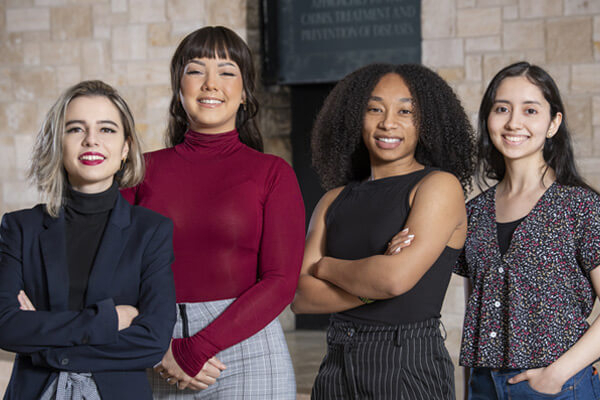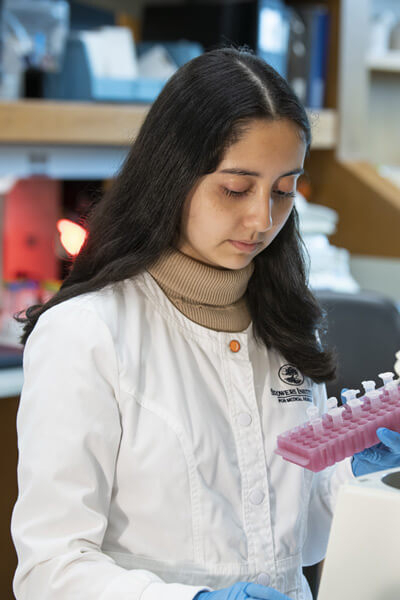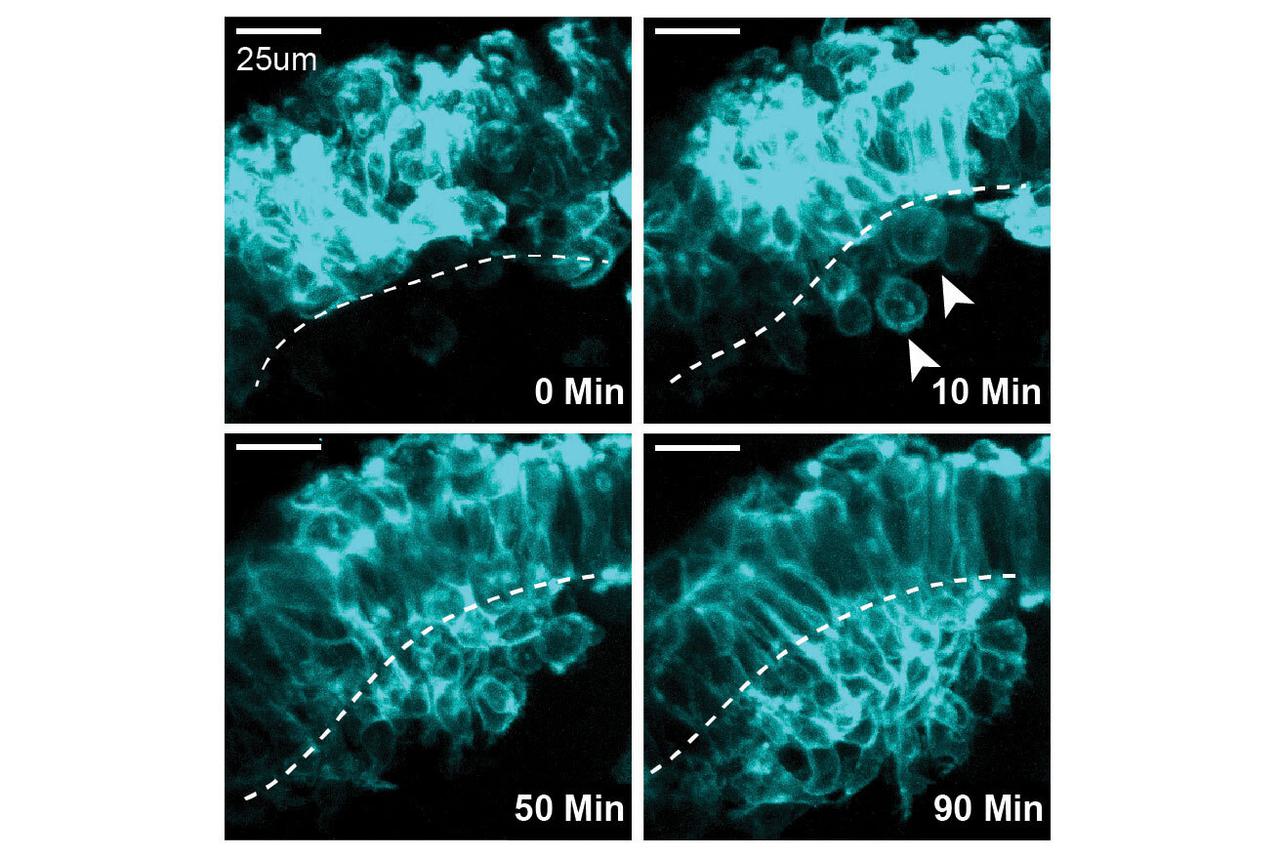“The postbac program creates a critical new training opportunity at
Stowers for recent college graduates from historically marginalized and
underrepresented groups,” said Gibson. “By providing each class of
Stowers Research Scholars with intensive research training and focused
mentorship, we aim to serve as a launchpad for their careers in
science.”
As we welcome the newest Research Scholars, we also say farewell to
members of the inaugural class - Enya Dewars, Brenda Sanchez, Shanaika
Vargas Rivera, and Helena Raposo - who recently capped their experiences
in Stowers labs with the very first Research Scholars Symposium held on
June 10, 2022.
Dewars, who earned her bachelor’s degree at the University of North
Carolina-Chapel Hill, spent the past year studying in the lab of
Alejandro Sánchez Alvarado, Ph.D. At the start of the fellowship, she
was interested in cancer and stem cell research and hoped that the
program would lead not only to increased opportunities for graduate
school applications but for the multi-disciplinary learning
opportunities from Stowers Technology Centers. After a successful year
studying spatial transcriptomics of planaria in the Sánchez Alvarado
lab, Dewars recently joined a Ph.D. program at Duke University.
Also hailing from the University of North Carolina-Chapel Hill is
Sanchez who spent her fellowship in the lab of Ron Yu, Ph.D., where she
studied the mammalian olfactory system. She earned her undergraduate
degree in biology and was the first college graduate in her family.
Sanchez values the accelerated research experience and the networking
opportunities the Institute provided. She recently began her Ph.D.
studies at the University of Virginia.
Vargas Rivera earned a bachelor’s degree in biotechnology in Puerto
Rico and spent her fellowship year studying in the labs of Ariel
Bazzini, Ph.D., and Nick Rohner, Ph.D. She performed research studying
metabolic adaptations in cavefish and will continue as a research
technician at a different institution.
Raposo, who earned a bachelor’s degree in bioengineering with a minor
in biology from Oregon State University, also completed her fellowship
in the Yu Lab. She will continue as a research technician in the Gibson
Lab and has future plans to pursue an MD/Ph.D.
"It was really incredible to watch the success of our inaugural class
and see how each student grew throughout the year. More than any
specific outcome, we hope their time at Stowers provided them a strong
foundation for the next step in their careers,” said Gibson.
On June 6, 2022, Taylor Shores and Andrea Frias Vellon began their
fellowships. During her undergraduate studies at the University of
Missouri-Kansas City, she spent three years as a research assistant in
the lab of Ryan Mohan, Ph.D., where she explored increasing the efficacy
of cloning gene primers. She graduated with a bachelor’s degree in
biology and a minor in chemistry. For the duration of her fellowship,
Shores will work in the Yu Lab and focus on neuron interactions in the
brain. She hopes to gain a more thorough understanding of research in
molecular and neurobiology and plans to pursue a Ph.D. in biology and a
career in academia.
Frias Vellon earned an undergraduate degree in marine biology with a
minor in criminology from Florida Southern College where she performed
research on the effects of microplastics and temperature in venom
production in the sea anemone, Nematostella vectensis. She will spend her fellowship in the Gibson Lab and hopes to continue working with Nematostella
and learn more advanced biology techniques. Following her fellowship,
Frias Vellon plans to pursue a Ph.D. or explore an alternative career
path, like working in an aquarium, that will allow her to collaborate
with researchers from different universities and institutes.
We had a remarkable first year of the program and I would like to
continue that momentum for the second year. I’m so grateful to have been
given the opportunity to direct this essential program. My previous
experience in diversity fellowships have helped shaped this program and
we ensure that each Research Scholar has a dedicated in lab mentor
coupled with academic mentorship. Our Research Scholars get the added
benefits of relocation assistance, temporary housing upon arrival, a
MacBook laptop computer, and conference allowance. I’m excited for the
second year of the program and look forward to entering another
application cycle,” said Wint.




